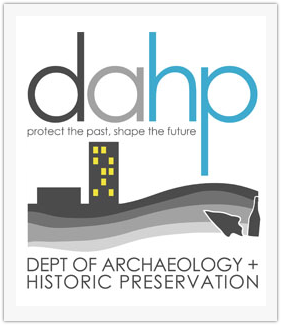CONDOLENCES FOR THE PASSING OF ARCHAEOLOGIST, JIM ROCK
Jun 28, 2010
Chuck James, archaeologist with BIA, has passed on the very sad news that James T. (Jim) Rock, 68, passed away on Friday, June 25, 2010, after a four-month battle with cancer.
Jim had retired from the U.S. Forest Service but continued to share his expertise in the analysis of historic artifacts with the archaeological community as well as participating numerous training workshops in both Washington and Oregon until his health began to fail.
A memorial will be held in Yreka at a later date to be announced.
He is survived by his wife, Mary Ellen Rock.
Condolences can be sent to:
If you've ever stumbled upon an old bottle or coffee can or some other type of well-aged product container while hiking in the woods, you may have wondered about its origin. Had your hiking companion been Jim Rock he probably could have told you on the spot a great deal of information about that object-when it was made, where it would fall in the chronology of a given manufacturer's series of containers for the product, and a whole lot more. Mary Ellen Rock418 South Oregon StreetYreka, California 96097 Jim received a "Heritage Hero" award from Oregon SHPO in April of 2009. Here is the text from Oregon's website: Jim Rock, who resides in Yreka, California, is a historical archaeologist and has spent years in the study of metal and glass objects long discarded and left to the ravages of nature. Over the years Rock has put together an exceptional collection of metal and glass artifacts that he uses in seminars and workshops. Today, Rock is being awarded a Heritage Stewardship Award by the Heritage Programs division of the Oregon Parks and Recreation Department, and here's why: Rock is passing along his unique collection of artifacts to retired U.S. Forest Service archaeologist Jeff LaLande so that future generations can learn from seeing and examining the objects firsthand. LaLande is an archaeological consultant with his own cultural resource management firm and lives in Ashland, Oregon. "Jim's collection of historic cans and bottles is extensive, a real treasure trove, and many of the oldest objects still have labels on them," says LaLande. LaLande goes on to explain that archaeologists can compare what they find at historic site excavations, mining towns, homesteads and logger camps with Rock's collection. "Jim's research work in tin-can typology, and how the making of cans has changed over the years, has enabled archaeologists to much more closely date historic archaeological sites than before." Using comparative analysis techniques, Rock can glean details from an object that most of us would never appreciate as being key clues that can unlock secrets of the past. An object's shape, color, surface imprints, as well as barely visible labeling and product logos all go into the way Rock makes accurate identifications. Rock is also receiving the "Heritage Hero" award because of his long service to natural resource agencies by imparting to them the importance of historical archaeology as they develop land management policies and procedures. For decades, Rock has been teaching hundreds of state and federal employees in the Pacific Northwest about why his area of expertise can be helpful in dating a historic site and determining information that may otherwise have been lost and unrecorded. Rock has published extensively on historical archaeology and has authored some of the preeminent publications in the field on basic identification of tin cans and bottles, evaporated milk cans and canning, log cabin identification, and railroad logging. His articles form the basis of many historic archaeology typologies. Among his many accomplishments, Rock has spent 28 years on the Klamath Nation Forest in Northern California as the cultural resources manager and tribal relations manager. He is a ten year veteran of the Washington Department of Transportation Archaeological Training Sessions as well as the Oregon Parks and Recreation Department's Archaeology Training Conference since 2005. His archaeological experience has taken him to many different regions of the country including the states of Kansas, Wisconsin, Illinois, Arizona, New Mexico, California, Oregon, Idaho and Washington.



